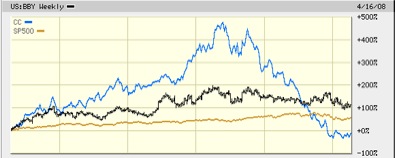Trust and the Standard Deviation
Those of you who regularly read Trust Matters have probably heard something about the Trust Equation, a formula for figuring out your own individual trustworthiness.
It looks like this:
Where:
T = Trustworthiness
C = Credibility (words)
R = Reliability (actions)
I = Intimacy (safety)
S = Self-orientation (whose agenda are you working?)
You can read more about it in this article:
From this equation, Charlie Green developed the Trust Quotient assessment–20 questions which yield powerful information on not only a person’s overall TQ, but also her or his areas of strength and – let’s be forthright – weakness when it comes to creating trust.
And the Trust Quotient Assessment Says…
Over the past two years more than 10,000 people have taken the TQ quiz. And what a rich and delicious trove of aggregated data that has given us – the largest study of its kind ever done on personal trustworthiness.
One of the key findings is this: in building trust, consistency matters.
The data show that the more consistent a person is across all four areas of the TQ (credibility, reliability, intimacy and low self-orientation) the higher that person’s overall TQ score will be.
Put another way, the higher the standard deviation among the four components’ scores, the lower will be the overall Trust Quotient number. Science has now shown what intuition has always told us. We trust people more when they display all four key factors evenly, when they act consistently. In some ways, this is what we mean when we say ‘integrity’—a sense that we are seeing a whole, that this person walks the talk, there are no secrets, what we see is what we get.
In less mathematical terms …
Imagine that you scored very well on credibility (you really know your stuff), on intimacy (you relate to others on a human level, and are open with them), and on self-orientation (you really listen to other people and want to understand how you can help, not just how you can make a sale.)
BUT–with all of this going for you, if you miss deadlines, show up late or not at all for meetings, and fail to get your part of the project done, no one is going to trust you.
Will they tolerate you? Maybe, if you are the super-expert they need on the job, or the total charmer who makes even wacky excuses sound plausible. But trust you? No. You’re a brilliant or charming flake. You can’t be relied upon.
Does the TQ Contradict Strengths-based Management?
On the face of it, this may appear to contradict the strengths-based approach to management championed by Marcus Buckingham, who argues you’re generally better off working from your strengths than fixing your weaknesses. Because if a charming flake can improve her or his score on reliability, she or he can improve their TQ trust score.
In fact, we don’t think it contradicts Buckingham’s basic proposition; if your natural strength lies in intimacy, for example, you’d do well to use it. But what if people can’t see it for the strength it is? What is your flakiness obscures it?
As is true so often, trust may be a bit of a special case. If the appearance of dis-integrity (flakiness, perhaps) is keeping people from seeing your natural strength in intimacy, then improving reliability is a way of enhancing your strength, rather than just shoring up your weakness.
This is just a peek into the tent of our findings from the survey data. Stay tuned to read more in future blogposts.


 I am on vacation this week, and will be going back to the vault for some ‘oldies but goodies’ posts. I hope you enjoy them: I’ll be back in a week or so with new material.
I am on vacation this week, and will be going back to the vault for some ‘oldies but goodies’ posts. I hope you enjoy them: I’ll be back in a week or so with new material.